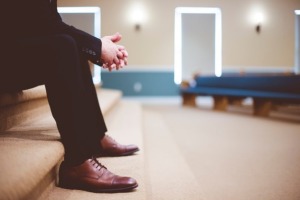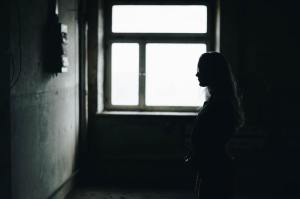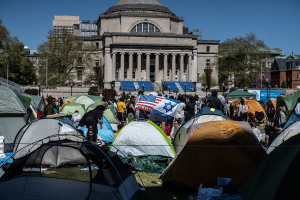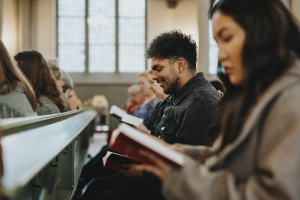In Europe: Christians under attack
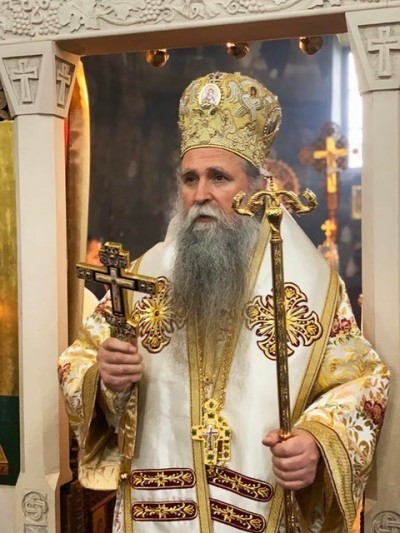
On May 25, a young orthodox vicar, Reverend Nikola Radovic, was brutally assaulted by a gang of masked attackers outside his church in Bar – a town on the Adriatic coast – where he had just celebrated communion with his parishioners. His assailants were as young and as locally-born as he. Yet as they set upon him they claimed he was the agent of a foreign power.
Only days before, just 60 miles from Bar, I and seven priests performed a service inside St. Basil of Ostrog Monastery, one of the holiest sites of Orthodox Christianity. It was in private, without worshipers, and with a prior announcement made that the annual public Saint Basil’s Day street procession was cancelled due to the coronavirus lockdown. Still, the faithful had gathered outside in their thousands, and I went to implore them to respect social distancing, and return home.
The arrests began in the evening. We were taken from our vicarage. They continued for several days, with police brutalizing and incarcerating hundreds of parishioners as they came out in towns and villages across the country to protest our imprisonment. Then they moved on, detaining archdeacons and a further 25 priests.
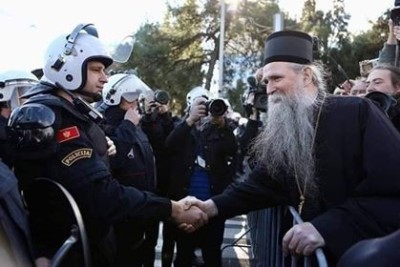
This should not be happening in Montenegro – a country in the heart of Europe that is majority Christian, a NATO member and a candidate for European Union membership. We fear the reason why it is is money.
Before Christmas, a new law perniciously named the Law on Religious Freedom came into force. Christian, Jewish and Muslim groups – and their assets – now require state registration.
There are few states in the world that genuinely practice freedom of religion yet compel faith communities to first be on an approved government register. There are even fewer that stipulate they must additionally prove the ownership of property before 1918 with the government land registry.
When some 80 percent of Montenegrins are Serbian Orthodox Christians it means that this law in practice is a law for their faith. And when other religious micro-communities have distinct and special treaties with the state that protects them from its property stipulations, it becomes a discriminatory law against the property of the Church.
Land ownership in the Balkans – with its complexities of history and long-shifting borders – should be open to contestation. But in any modern country property disputes should and are heard in courtrooms. In Montenegro, under the new law, they shall instead be decided by the government land registry itself, with no right to appeal their decision in the courts. They have been appointed auditor, judge, jury and executor of all ownership disputes for religious property.
These are holy places of Christian worship, monasteries, hostels for the homeless, and farms that feed many hundreds of families each and every day through soup kitchens. They are buildings that fund university scholarships for young Montenegrins, sanctuary for the destitute and spiritual nourishment.
Those of faith and those in need cannot afford not to have their Church unable to support them. Yet with this law, those property are under threat, and the resources that the Church uses for good is in danger of being diverted to fend off fictitious land ownership claims.
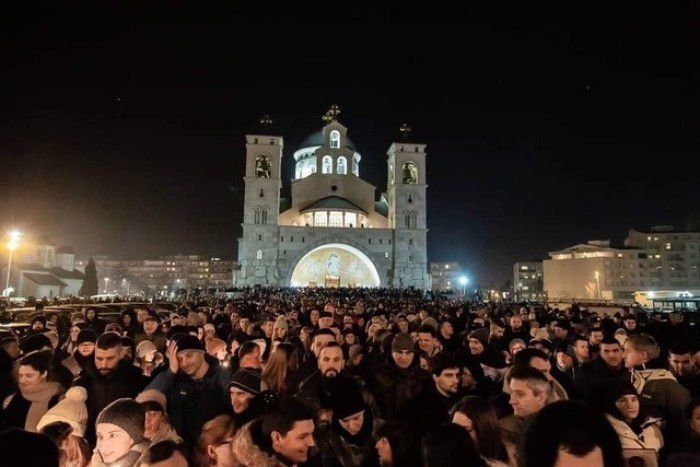
Many faithful Christians in Montenegro fear this will occur. That is why, before the coronavirus lockdown, they came out onto the streets across the country to protest this wrongful law. Sixty thousand alone marched in the capital Podgorica – some ten percent of the entire population – gathered in a single mass demonstration, calling for its recall.
The government has reacted by claiming the Church is a foreign influence in the country, its priests and leaders not of Montenegro. Because we are called the Serbian Orthodox Church this can unfortunately be made to sound credible in the parliaments of Europe and the corridors of the US Congress. Yet we have had the same name across the Balkans for eight hundred years.
No one would suggest that the Roman Catholic Church is Roman, nor its priests and parishioners anything but local to the many countries where Catholicism is practiced. It is no different with our Church: our vicars, monks and worshipers are as equally loyal to their country of citizenship as they are subjects to their faith.
Reverend Radovic realized this, and his reaction to his brutal assault before his own church was the act of a man of God. When the culprits were found, he asked for charges not to be brought. He begged instead for forgiveness from his assailants, and for them to show the same grace through a donation to his parish. When they could not afford to do so, he gave them the donation himself – and they duly gave it to the church.
We wish only for peace and to continue to serve the people. We have no interest in politics. We believe that government should have no interest in religion. As in Luke 23:34 we forgive them, for they do not know what they do. And we pray that they turn back, and recall this unnecessary law.
His Grace Bishop Joanikije is Bishop of Budimlja and Nikši in Montenegro.
















